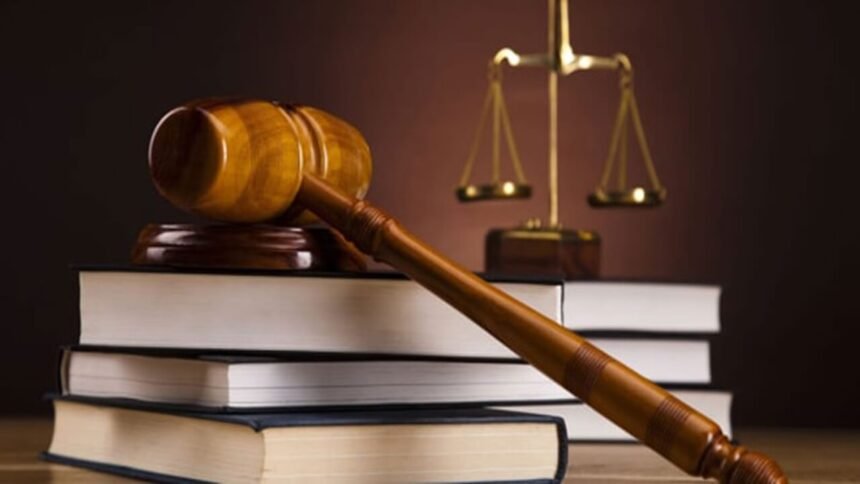The independence of the judiciary is one of the cornerstones of any democratic society. It serves as the guardian of the rule of law, ensuring that laws are applied fairly and impartially, regardless of political pressures. However, attacks on judiciary independence have become increasingly common in many countries, undermining the very foundation of democracy. These attacks come in many forms—political interference, threats to judicial autonomy, and, in extreme cases, physical violence against judges. In this article, we will delve into the implications of attacks on judiciary independence, explore the causes behind these threats, and analyze their consequences for democracy and governance.
The Significance of Judiciary Independence in a Democracy
In a democracy, the judiciary is meant to act as an impartial arbiter between competing interests, ensuring that the government operates within the limits set by the Constitution and laws. The judiciary’s independence allows it to interpret the law and make decisions free from external influence or political pressure. When the judiciary operates independently, it ensures that citizens’ rights are protected and that there is a system of checks and balances in place to prevent the abuse of power.
Unfortunately, the independence of the judiciary is not always guaranteed. Attacks on judiciary independence can have far-reaching consequences for the rule of law and the functioning of democratic institutions. These attacks often occur in countries where authoritarian leaders seek to consolidate their power by undermining institutions that serve as checks on their authority. As a result, the judiciary becomes less able to hold the government accountable for its actions, leading to an erosion of democracy itself.
Forms of Attacks on Judiciary Independence
Attacks on judiciary independence can manifest in various forms. These attacks may be direct or indirect, and they can be subtle or overt. Below are some of the most common forms of attacks on the judiciary:
1. Political Interference in Judicial Appointments
One of the most common ways that judicial independence is undermined is through political interference in the selection and appointment of judges. When politicians or government officials have the power to appoint judges based on their political affiliations, it raises concerns about the impartiality of the judiciary. This type of interference can lead to a judiciary that is more aligned with the interests of the ruling party, rather than serving as an independent check on government actions.
2. Undermining Judicial Decisions
Another form of attack on the judiciary is through attempts to undermine or ignore judicial decisions. This can take the form of legislative actions that override court rulings or executive actions that disregard court orders. When governments refuse to implement or comply with court decisions, it sends a clear message that the judiciary is not an equal partner in the system of checks and balances.
3. Harassment and Intimidation of Judges
In some cases, judges face harassment, threats, and intimidation for making rulings that are unfavorable to those in power. These threats can come from various sources, including politicians, law enforcement, and even the general public. Harassment can take the form of public campaigns to discredit individual judges, or more extreme measures such as physical violence or assassination attempts.
4. Legal and Institutional Reforms That Weaken Judicial Power
Governments seeking to undermine judicial independence often introduce legal reforms that diminish the judiciary’s power. These reforms may include changes to the judicial appointment process, limitations on the scope of judicial review, or the removal of key protections for judicial independence. Such reforms are often framed as attempts to improve the judicial system, but in reality, they serve to increase political control over the judiciary.
The Consequences of Attacks on Judiciary Independence
The consequences of attacks on judiciary independence are severe and far-reaching. When the judiciary is no longer able to operate independently, it undermines the entire system of checks and balances that is essential to a functioning democracy. Below are some of the key consequences of undermining judiciary independence:
1. Erosion of the Rule of Law
The rule of law is a fundamental principle in democratic societies, ensuring that laws apply equally to all individuals and that no one is above the law. Attacks on judiciary independence threaten the rule of law by allowing government officials and politicians to act with impunity. Without an independent judiciary to hold them accountable, those in power can violate the law without facing consequences.
2. Increased Political Corruption
When the judiciary is not independent, it becomes easier for politicians and government officials to engage in corrupt activities without fear of legal repercussions. The lack of an impartial judicial system allows for the manipulation of legal processes, where powerful individuals can escape justice by using their influence over the courts.
3. Weakening of Democracy
Judiciary independence is crucial to maintaining the balance of power between the executive, legislature, and judiciary. Attacks on the judiciary destabilize this balance and pave the way for authoritarian rule. When a government is free to manipulate the courts, it consolidates its power and reduces the ability of the public and opposition parties to hold it accountable.
4. Loss of Public Trust
Public trust in the legal system is essential for the functioning of a democracy. When people perceive the judiciary as biased or compromised, they lose confidence in the fairness of the legal system. This can lead to widespread disillusionment and a sense of powerlessness among citizens, further eroding democratic values.
Expert Opinion on the Matter
According to legal expert and former U.S. Supreme Court Justice Sandra Day O’Connor, “An independent judiciary is vital to the preservation of a free and fair society. Without it, the rule of law cannot exist.” Her statement underscores the importance of maintaining judicial independence as a safeguard for democracy. Without an independent judiciary, the rule of law becomes compromised, and the government becomes free to pursue its agenda without checks or accountability.
Addressing the Threats: How Can We Protect Judiciary Independence?
Protecting judiciary independence requires concerted efforts from both domestic and international actors. Below are several measures that can help safeguard the independence of the judiciary:
1. Strengthening Legal Protections for Judges
One of the key ways to protect judicial independence is to ensure that judges are protected from political interference. This can be achieved by establishing strong legal protections that prevent judges from being removed or punished for making unpopular decisions. Additionally, reforms can be implemented to make the judicial appointment process more transparent and less susceptible to political manipulation.
2. Increasing Public Awareness
Raising public awareness about the importance of judiciary independence is crucial in building support for judicial reforms. Public education campaigns can help citizens understand the vital role of an independent judiciary in protecting their rights and upholding the rule of law.
3. International Support for Judicial Independence
International organizations, such as the United Nations and regional bodies like the European Union, can play a critical role in supporting judiciary independence. These organizations can exert diplomatic pressure on governments that undermine the judiciary and provide assistance to countries seeking to strengthen their judicial systems.
Conclusion: The Need for Vigilance
Attacks on judiciary independence represent a grave threat to the foundation of democracy. Whether through political interference, threats against judges, or legal reforms designed to weaken the judiciary, these attacks undermine the rule of law and pave the way for authoritarianism. To preserve democracy, it is essential to protect the independence of the judiciary and ensure that judges can make impartial decisions without fear of reprisal. As citizens, we must remain vigilant and advocate for judicial reforms that promote transparency, fairness, and accountability. Only by doing so can we ensure that the rule of law remains a cornerstone of our democratic values.
you may also like
DC Superior: Understanding Its Role and Significance in Modern Technology






